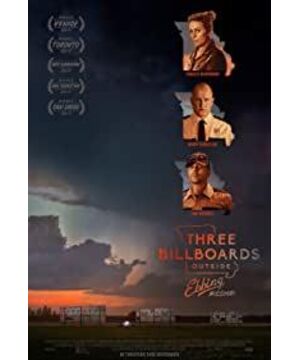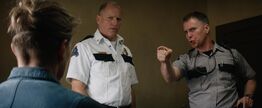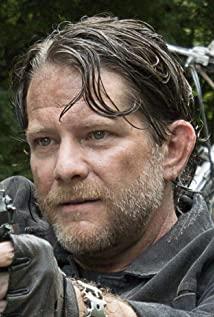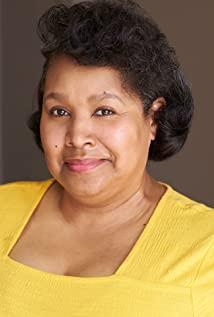Note: Regarding this long review, the problem of my own memory has caused some misunderstandings. The "Attica Prison Riot" occurred in Wyoming County, New York State, not Wyoming. The original English name was "Are you sure you aren't thinking of Wyoming". Because of the deep memory of "Hot Day Afternoon", I remembered the Attica prison riots. This incident has indeed had a greater impact. But it is speculated to avoid ambiguity if the wording of this Welby should be directly Attica, so the incident should not be mentioned here.
A bean friend pointed out:
The Matthew Shepard incident he mentioned is as follows:
I'm not quite sure that this is the correct answer, but the Wyoming issue should have nothing to do with race. Let's guess and judge by yourself.
I won't delete this long review, but it's probably useless, so I will keep it for myself. Let it sink by itself or you can click "useless" to make it sink faster, thank you very much.
Since watching "I, Tonya", I have been very interested in this film. Although Lavona's mother is extremely fucked, she is one of the primary reasons for the tragedy of Tanya. But she also supported such a hodgepodge, and Alison Jenny's outstanding performance is beyond doubt. In "Three Billboards," Francis even won several awards such as the Golden Globe Award for Best Actress in a Feature Film. It is said that his harshness has reached the stance of having a Star Wars. So I was not fluent in my mouth and eager to learn, I hurried to move a small bench to eat melon seriously, understanding as follows:
One or two mysteries hidden in the plot
1. When Dixon was drunk and communicated with Welby at the pool table, Welby said, "Are you sure you didn't remind you of Wyoming". What involved was the "Attica Prison Riot ": In 1971, there was a big problem between white prison guards and black prisoners. Large-scale armed conflict, because black prisoners strongly demand human rights. In the end, the white prison guards shot the prisoners (regardless of the life and death of the hostages). Welby mentioned that this may be due to dissatisfaction with Dixon's abuse of black people in the town. This is probably also when Willoughby had an accident, Dixon was the first to find Welby to blow his breath. After throwing him out the window, he still beat him to death and said the phrase "I will get into trouble because of the white man". As we all know, Dixon is a gay, and from the two scenes we saw through Mildred's eyes (1. Welby was staring at the female colleague’s ass when Mildred went to rent a billboard. 2. Mildred entered the police station and looked out the window because of the dentist incident. When I watched, Welby was molesting a female colleague in the company.) It can be judged that Dixon and Welby did not go to bed that night at the bar. Welby is a man that Dixon will never get. And from the fact that Dixon's mother taught him to operate on Mildred's friends when he couldn't handle the billboard incident, it was learned that Dixon developed a violent and impulsive personality under the influence of his mother. Therefore, he later apologized to Welby for the burn and the scolding of his mother was a turning point in his growth. He just ran into a fucking mother.
2. Regarding the murderer, this movie adopts the scene of "Memories of Murder" that mobilizes all your expectations but finally disappoints you. It asked the man to intimidate Mildred and then let the man admit that he raped someone in the bar, which stunned our appetite, and it had the same time and experience: the time was right, and it was also burned to death. When we started to rejoice that the murderer was caught, he had already changed his mind: "I won't be sad about that. That was the last day I was there" and he was not afraid of assaulting the police, so he told us He was not the murderer of Angela. But what does this film say is the murderer who killed Angela? The only time mentioned in this film is 1986 (Welby: No one has posted advertisements on those three billboards since 1986), so it can be roughly speculated that after 1990, and 90 years later, which " It is already self-evident that the "sandy" country has invaded. For Mildred and Dixon, what they want to uphold is the justice of killing and paying for life, and what we want to understand is human rights and aggression.
2. She is just afraid that she is not a good mother
This is a crime drama with American-style violent humor and a fusion of various social issues. Unlike ordinary commercial movies, it hides this commercialized routine in the character of the character, and the story triggered by the character of the character does not go as expected. But in fact, no matter how you analyze it, you will find that Mildred's series of actions are nothing more than love for her daughter Angela. She regards Angela's death as her own responsibility, so she is eager to find the murderer, so that she can be part of the blame. She is too afraid that she is not a good mother.
Just like the Beetle who gently adjusted the position of the billboard when she rented it, she also eagerly hoped that she could accept the self whom she hated. Let's analyze from several scenes: 1. Angela chose to walk without borrowing a car before going out because she stubbornly refused to borrow a car at the time. 2. From Angela's wording, it can be understood that Angela is dissatisfied with her in her heart and feels that she does not love her and her brother (driving them in a car after being drunk). Even though she was treated by domestic violence at the time, she thought it was part of her responsibility. 3. She taught Angela and her son Robbie not to speak swear words at home to prove that she intends to be a qualified mother. 4. When the father suddenly lifted the table and pinched Mildred, the son quickly reacted and put a knife against his father’s neck. It was also known that domestic violence was normal before the divorce , and that Mildred and the two children were also known from the father’s irritable temper. Suffer deeply. Therefore, after the divorce, the two children followed her instead of the father who drove the sports car. This was the point that gave her the most comfort in this sad marriage, even if she had nothing, she still had children. But when the father said that Angela would rather follow him, she broke down. This also paved the way for the seriousness of later things. So she placed the responsibility for her daughter's accident on her body, and urgently needed to vent her anger, and urgently needed to find a murderer to avenge Angela. But just as the 19-year-old girl her ex-husband said, "Anger provokes greater anger" , what she did later was not only for Angela. This film, written and directed by Martin MacDonald, is excellent in editing and soundtrack, and the narrative is extremely small and interlocking. The key point is that it made such a subject matter so gentle, lonely, and sad. It's really a rare film.
Note: Rebuttals and suggestions are welcome.
View more about Three Billboards Outside Ebbing, Missouri reviews











